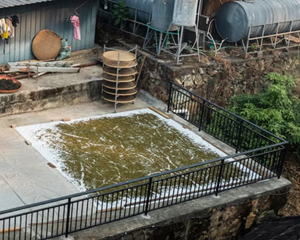Despite his family's owning thousands of venerable tea trees, Ai lived in poverty during his childhood because demand for their product was nonexistent.

By 2003, Su Guowen, a retired primary school teacher who claims to be a descendant of Pa Aileng, felt the need to act.











